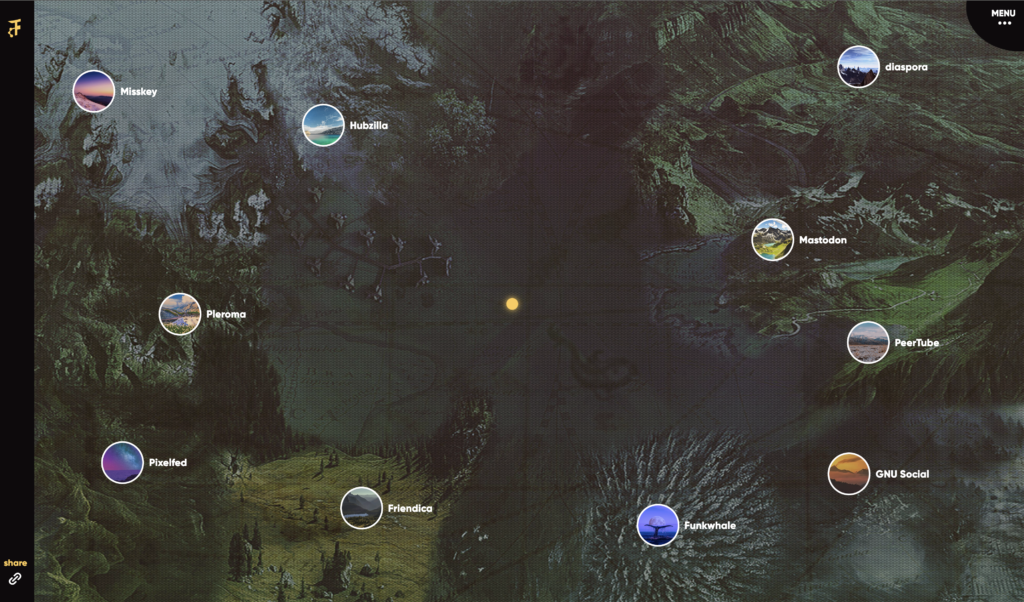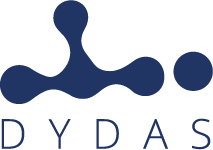L’obiettivo del decennio digitale europeo per il 2030 mira a rafforzare le imprese e le persone in un futuro digitale incentrato sulla sostenibilità e sull’essere umano; le decisioni a sostegno dei beni comuni digitali diventano rilevanti per preservare la visione originale di Internet come non monopolistica e non privatizzata.
Offrendo ai cittadini un’alternativa ai principali attori commerciali, ActivityPub fornisce gli elementi costitutivi concettuali per una cooperazione trasversale. Apre anche la porta all’adozione diffusa del Fediverse (“universo federato”, ovvero l’insieme di tutti i siti web che possono comunicare tra loro attraverso ActivityPub e il World Wide Web), rendendo di nuovo Internet un’infrastruttura decentralizzata in grado di accogliere la diversità, formando un’alternativa libera e più democratica alla situazione odierna.
Dalle pagine web della Next Generation Internet (NGI), un’iniziativa della Commissione Europea che supporta molti strumenti Fediverse (come Mastodon, PeerTube, Pixelfed, GoToSocial, Lemmy e Owncast, ognuno dei quali soddisfa i propri casi d’uso), apprendiamo che il Fediverse può essere visto come una “un’altra classe di pagine web”.
Riprendiamo e traduciamo, con qualche adattamento, l’articolo in inglese del blog NGI per riportare degli esempi della Fediverse: PixelFed è più orientato alla condivisione di foto (come Instagram). Lemmy è un’ottima alternativa a Reddit (sito Internet di social news). E Owncast consente lo streaming live, proprio come Twitch. Ciascuno di questi è già prezioso di per sé. Insieme, offrono un’alternativa realistica per gli utenti che desiderano allontanarsi dai social network online di grandi aziende oltre a strumenti ActivityPub più generici come GoToSocial, Bonfire, GNU Social, Mastodon e #Seppo.
Alcune azioni di specializzazione hanno ricevuto sostegno finanziario dall’iniziativa NGI, per esempio Castopod, una soluzione avanzata di hosting di podcast open source; Corteza, una piattaforma low-code per la creazione di applicazioni Web basate su cloud. Funkwhale, una piattaforma di streaming e condivisione audio gratuita, decentralizzata e open source. Inventaire è un’app web per la condivisione di libri liberi, che condivide le conoscenze sui libri e aiuta le persone a connettersi per discuterne, prestarli, condividerli e venderli. Lemmy, come mezionato prima, è un aggregatore di link open source, facilmente auto-ospitabile che è possibile utilizzare per condividere e scoprire nuove idee interessanti e discuterne con il mondo. Si tratta di uno strumento federato per trovare, creare e organizzare eventi, consentendo agli eventi della comunità di beneficiare di una maggiore visibilità e partecipazione. Owncast è una piattaforma di live streaming open source self-hosted che consente alle persone di ospitare e gestire facilmente i propri live streaming. PeerTube è una piattaforma video gratuita e federata. Il video-clip è una tipologia di contenuto molto popolare e nel frattempo rappresenta una quota significativa del traffico Internet, PeerTube amplia notevolmente la scelta delle opzioni di hosting
Pixelfed, una piattaforma di condivisione di foto open source e decentralizzata, allo stesso modo di servizi come Instagram.
XWiki, un sistema wiki open source moderno ed estensibile che consente di seguire singole pagine wiki e permette alle persone di commentarle senza dover creare un nuovo account.
NGI continuerà a coltivare la diversità e il decentramento dell’infrastruttura Internet con l’obiettivo di sviluppare il potenziale per una maggiore sostenibililità ambientale per la società, promuovendo la creatività e realizzando la prossima generazione di Internet
affidabile, sicuro ed efficiente dal punto di vista energetico.
Sono oltre 700 innovatori finanziati in ambito NGI che stanno operando per raggiungere una nuova generazione di Internet.
L’Internet di nuova generazione dialoga con i cittadini e l’elettorato direttamente attraverso il consolidato Mastodont dell’UE, entrando a far parte del Fediverse – la più grande alternativa alle piattaforme centrali – basata su tecnologia federata, open source e standardizzata.
Le candidature NGI sono verificabili al seguente link Open Call
Towards a new generation of Internet through open standards and free Open Source software
The European Digital Decade goal for 2030 aims to empower businesses and people in a digital future focused on sustainability and people; decisions in support of the digital commons become relevant to preserving the original view of the Internet as non-monopolistic and non-privatized.
By offering citizens an alternative to major commercial players, ActivityPub provides the conceptual building blocks for cross-cutting cooperation. It also opens the door to the widespread adoption of Fediverse (“federated universe”, i.e. the set of all websites that can communicate with each other through ActivityPub and the World Wide Web), making the Internet once again a decentralized infrastructure capable of welcome diversity, forming a free and more democratic alternative to today’s situation.
From the web pages of the Next Generation Internet (NGI), a European Commission initiative that supports many Fediverse tools (such as Mastodon, PeerTube, Pixelfed, GoToSocial, Lemmy and Owncast, each of which cater to their own use cases), we learn that Fediverse can be seen as “another class of web pages”.

Let’s take up and translate, with some adaptations, the English article of the blog NGI to report examples of Fediverse: PixelFed is more oriented towards sharing photos (like Instagram). Lemmy is a great alternative to Reddit (social news website). And Owncast allows for live streaming, just like Twitch. Each of these is already valuable in itself. Together, they offer a realistic alternative for users looking to move away from large corporate online social networks beyond more generic ActivityPub tools like GoToSocial, Bonfire, GNU Social, Mastodon, and #Seppo.
Some specialization actions have received financial support from the NGI initiative, for example Castopod, an advanced open source podcast hosting solution; Corteza, a low-code platform for building cloud-based web applications. Funkwhale, a free, decentralized and open source audio streaming and sharing platform. Inventaire is a free book sharing web app, which shares knowledge about books and helps people connect to discuss, lend, share and sell them. Lemmy, as mentioned earlier, is an open source, easily self-hosted link aggregator that you can use to share and discover new interesting ideas and discuss them with the world. It is a federated tool for finding, creating and organizing events, allowing community events to benefit from greater visibility and participation. Owncast is a self-hosted open source live streaming platform that allows people to easily host and manage their own live streams. PeerTube is a free and federated video platform. Video clip is a very popular type of content and meanwhile it accounts for a significant share of Internet traffic, PeerTube greatly expands the choice of hosting options.
Pixelfed, an open source and decentralized photo sharing platform, in the same way as services like Instagram.
XWiki, a modern and extensible open source wiki system that allows you to follow individual wiki pages and allows people to comment on them without having to create a new account.
NGI will continue to cultivate the diversity and decentralization of the Internet infrastructure with the aim of developing the potential for greater environmental sustainability for society, fostering creativity and realizing the next generation of the Internet, reliable, safe and energy efficient.
More than 700 NGI-funded innovators are working to reach a new generation of internet.
The new generation Internet communicates with citizens and the electorate directly through the consolidated EU Mastodon, becoming part of the Fediverse – the largest alternative to central platforms – based on federated, open source and standardized technology.
NGI applications can be verified at the following Open Call link


